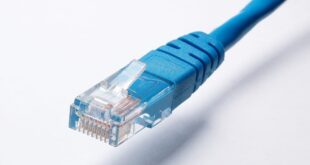The Ultimate Guide to Firewalls: Everything you need to know!
Overview
Firewalls play an important role in protecting our online presence. Since we live in the digital age, our personal and business information are vulnerable to a variety of cyber threats, which is why firewalls became an absolutely essential tool in cybersecurity. In this article, we will concentrate on everything you need to know about firewalls.
Firewalls Defined
A firewall is an essential security system that monitors and controls data that comes in and out of your network. It is designed to prevent unauthorized access to your network and ensure that only trusted and authorized connections are accepted.
Types of Firewalls
There are three main types of firewalls: hardware firewalls, software firewalls, and cloud firewalls.
Hardware firewalls
Hardware firewalls are standalone devices designed to protect the entire network in a corporation. They create a barrier between the internal network and external traffic.
Software firewalls
Software firewalls apply protocols to individual devices to prevent incoming traffic on these specific devices. Instead of a standalone box, it typically launches on your individual devices.
Cloud firewalls
Cloud firewalls provide multi-layer protection seamlessly supplanting software firewalls.
Benefits of Firewalls
Firewalls protect against malicious intrusion not only in the business environment but individually. Firewalls shield endpoints from various malware types such as spyware, trojans, spoofing, replay attacks, and more!
How a Firewall Works
Firewalls work by monitoring all network traffic coming into or leaving an network/individual endpoint. This traffic is scanned and evaluated based on set parameters like the ports accessed through protocols, the application sources used and content type if behind traditional firewalls an IDS in integrated or if behind a cloud firewall.
Firewall Provider Options
Firewalls are integrated into a wide array of applications and provider types. Such as ubuntu, Norton and Sophos.
Conclusion
In conclusion, a firewall implementation is an essential component of cybersecurity infrastructure. By offering many units of defense like application control and responsive threat detection mechanisms, the security properties and policies a smart device brings will certainly allow, individuals, an improved protection / businesses to grow and maintain integrity among clients. Firewalls work to protect against malicious intrusion permanently, there is no point in hosting responsibilities or putting intellectual property on line with exciting advances in firewall system applications that mitigate unknown threats both individuals and enterprise alike are considered privileged.
 Mind Uncharted Explore. Discover. Learn.
Mind Uncharted Explore. Discover. Learn.




